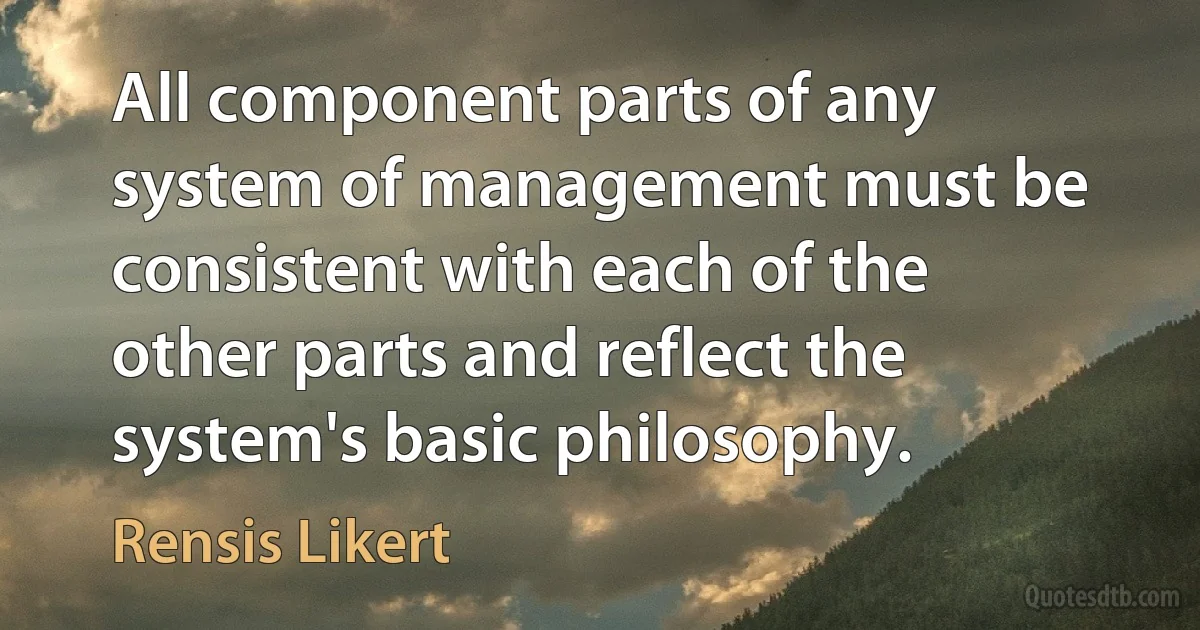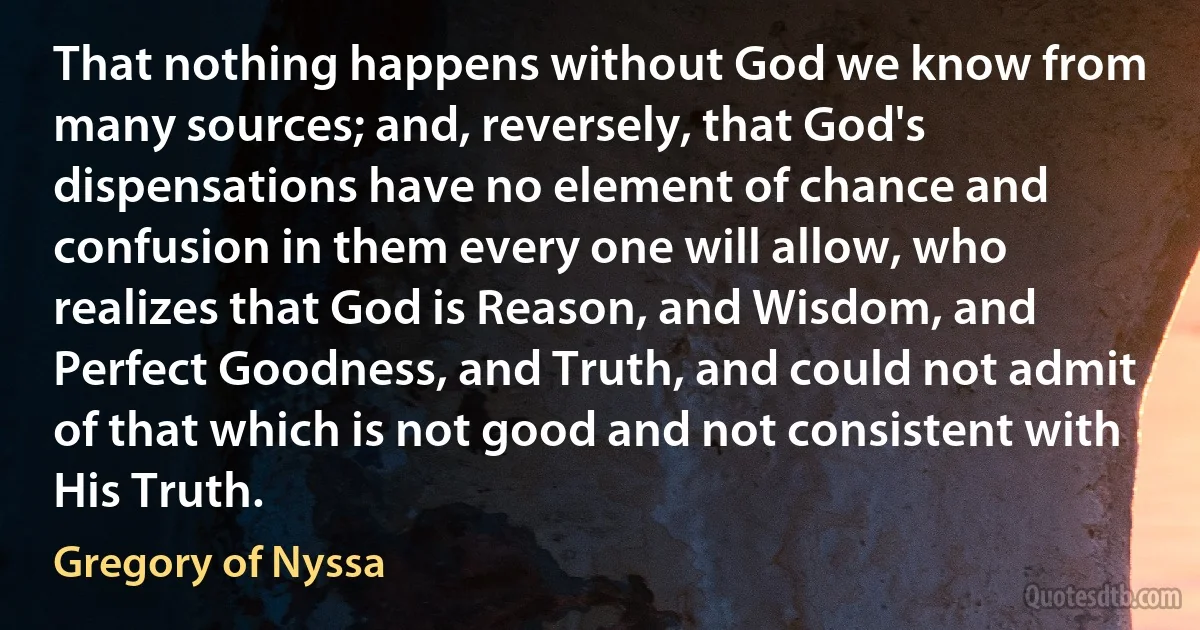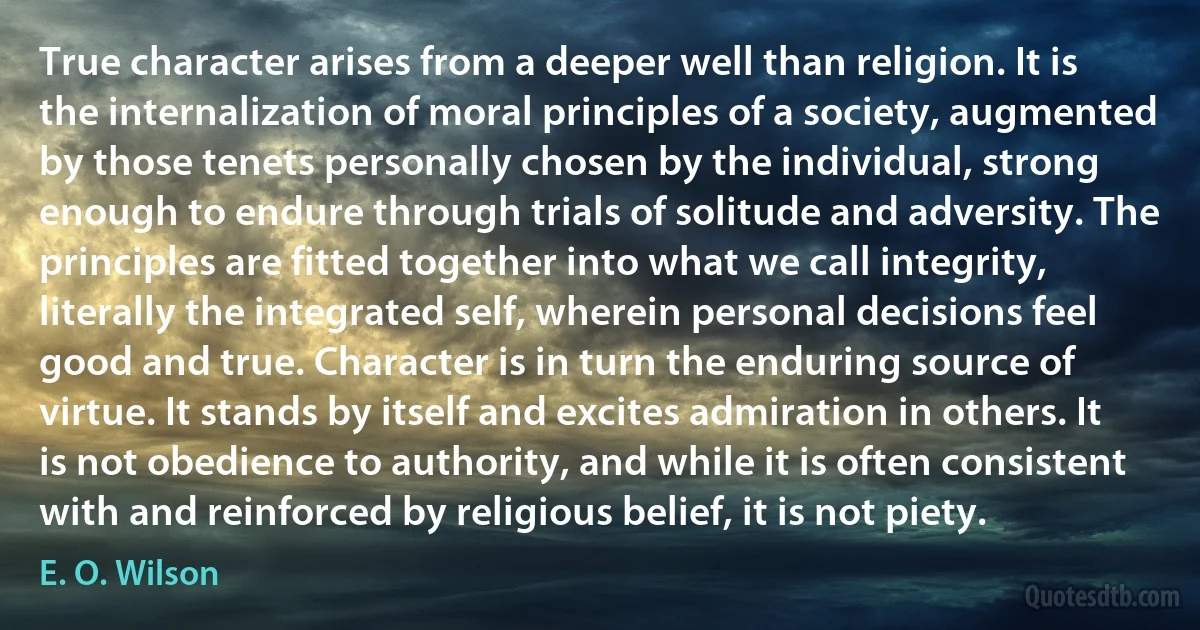Consistent Quotes - page 21
Wars fought exclusively on foreign soil do have marginally higher real output growth than peacetime periods, but real growth during all other wars is sharply below peacetime levels. Evidence for foreign and domestic wars is consistent with monetarist, fiscalist, and mixed theories of wartime booms.

Bryan Caplan
In the heart of the sphere of everything that keeps changing, there one thing that never changes-life. Life is the one thing that stays with me until the very end. Today, people may like me. Tomorrow, they may not. But my life is still there. It is not subject to good and bad. Human beings are the thinkers-homo sapiens-the ones with the brains. We can think about things, and in our thoughts, everything keeps changing. In our moods, everything keeps changing. Yet, in our beings, there is the heart, and the heart does not change because it is consistent with only one thing. Our needs on the outside change all the time, but the heart's need never changes. It is consistently the same, and always will be.

Prem Rawat
This book is dedicated to the memory of my teacher Rudolf Bultmann. He encouraged me more than thirty years ago to deal more intensively with the extra-canonical writings from the early Christian period. His unwavering insistence upon the consistent application of the historical-critical method and his emphasis upon the investigation of early Christian literature in the context of the history of religions must remain basic commitments of New Testament scholarship.

Helmut Koester
There is a need to put in place regulations that will promote a uniform and consistent standard for the design and installation of road signs, waiting sheds, streetlights, speed bumps and other road infrastructure not only to promote safety, but also to advance aesthetics throughout the country's thoroughfares.

Francis Escudero
Frankly, neither of [the presidential candidates'] numbers adds up. But I've come to see a consistent pattern in Obama's. For the life of me, Senator Straight Talk, I see no such straight thing with yours. You rail against big government, yet continue to push cockamamie spending plans that make a mockery of it. That's why you're losing right now, Senator McCain. Not because you don't have the courage of your convictions. But because on economic matters, you have no convictions, period.

John McCain
John McCain's tin ear on middle-class financial woes was evident in his prescription for the economy: more tax-cuts for major corporations, and continuation of the Bush tax cuts for U.S. millionaires. And this McCain stance was consistent with his stated desire to slash Medicare and privatize Social Security. The American public was fed-up with failed Bush/McCain economics, which claimed that prosperity would eventually "trickle-down" to everyone else. Obama won the presidential race largely because voters perceived that he, and not John McCain, cared about and would address middle-class economic struggles and inequities.

John McCain
Slowly I came back from a weird, unfamiliar world to reassuring everyday reality. The horror softened and gave way to a feeling of good fortune and gratitude, the more normal perceptions and thoughts returned, and I became more confident that the danger of insanity was conclusively past.
Now, little by little I could begin to enjoy the unprecedented colors and plays of shapes that persisted behind my closed eyes. Kaleidoscopic, fantastic images surged in on me, alternating, variegated, opening and then closing themselves in circles and spirals, exploding in colored fountains, rearranging and hybridizing themselves in constant flux. It was particularly remarkable how every acoustic perception, such as the sound of a door handle or a passing automobile, became transformed into optical perceptions. Every sound generated a vividly changing image, with its own consistent form and color.

Albert Hofmann
There may be many systems of religion, that so far from being morally bad, are in many respects morally good: but there can be but ONE that is true; and that one, necessarily must, as it ever will, be in all things consistent with the ever existing word of God that we behold in his works. But such is the strange construction of the Christian system of faith, that every evidence the heavens affords to man, either directly contradicts it, or renders it absurd.

Thomas Paine
Whether religion is a divisive or reconciling force depends on our certainty or our humility as we practice our faith in our politics. If we believe that we know God's truth and that we can embody that truth in a political agenda, we divide the realm of politics into those who are on God's side, which is our side, and those with whom we disagree, who oppose the side of God. This is neither good religion nor good politics. It is not consistent with following a Lord who reached out to a variety of people - prostitutes, tax collectors, lepers. If politics is the art of compromise, certainty is not really politics, for how can one compromise with God's own truth? Reconciliation depends on acknowledging that God's truth is greater than our own, that we cannot reduce it to any political platform we create, no matter how committed we are to that platform, and that God's truth is large enough to accommodate the opinions of all kinds of people, even those with whom we strongly disagree.

John Danforth
In countless resolutions, the UN General Assembly has acknowledged that there is no single model of democracy, that democracy cannot be exported but must be home-grown, that each country should find its own way consistent with the right of self-determination of peoples and the principles of the UN Charter.

Alfred de Zayas
Forgive me of saying so, but good things just have to grow very slowly. I say this in connection with your [Doesburg's] plans.. ..for launching a journal [ De Stijl. I do not think that the time is favourable for it. More must be achieved in art in that direction. I hardly know anyone who is really creating art in our style, in other words, art which has arrived.. ..(i.e. you will have to include in it [in the planned art-Journal '[[w:De Stijl|De Stijl'] what is not consistent with our ideas.)

Piet Mondrian
The regeneration of the inferior or bastard races by the superior ones is consistent with God's plans for humanity. The man of the people, in our countries, is always a fallen aristocrat; his hands are made to handle the sword rather than the laborer's tools. He prefers warring to working, that is, he returns to his original calling.

Ernest Renan
Nehru's absolute refusal to support the Tibetans even at the diplomatic level when they were overrun by the Chinese army, cannot just be attributed to circumstances or the influence of collaborators: his hand-over of Tibet to communist China was quite consistent with his own political convictions.

Koenraad Elst
Macro rational expectations, as I have labeled the hypothesis, seems to say that expectations in an economist's model must be perfectly consistent with his model that embodies these expectations. In other words, the agents of his model must all share his views of the relevant economic mechanisms, as well as his data. Why? Because if he holds them they must believe they are God's truth and, if so, rational people can have no other views (and of course we should never ask how they would come by these views and data, that not even other specialists may have heard of yet, let alone accepted). I submit that this view is pretty absurd--I would almost say offensive! I certainly believe that I know more about economics and the economy than (almost) everybody else, and i can even prove it: If everybody shared my vies, then the economy could not be in today's troubles (though it might conceivably be in some different ones!).

Franco Modigliani
We must not look too dangerous to the enemy. This does not mean that we cannot do anything that threatens him. After all, our mere possession of a Type I Deterrence capability implies that we can harm him if we desire. But it does mean, to the extent that is consistent with our other objectives, we should not make him more insecure than is necessary. We do not want to make him so unhappy and distraught that he will be tempted to end his anxieties by the use of drastic alternatives. We do not wish him to conclude, "better a fearful end than endless fear." We must not appear to be excessively aggressive, irresponsible, trigger-happy, or accident prone, today or in the future.

Herman Kahn
Acknowledgement, and celebration, of mystery probably constitutes the most consistent theme of my poetry from its very beginnings. Because it is a matter of which I am conscious, it is possible, however imprecisely, to call it an intellectual position; but it is one which emphasizes the incapacity of reason alone (much though I delight in elegant logic) to comprehend experience, and considers Imagination the chief of human faculties. It must therefore be by the exercise of that faculty that one moves toward faith, and possibly by its failure that one rejects it as delusion. Poems present their testimony as circumstantial evidences, not as closing argument. Where Wallace Stevens says, "God and the imagination are one," I would say that the imagination, which synergizes intellect, emotion and instinct, is the perceptive organ through which it is possible, though not inevitable, to experience God.

Denise Levertov
Venezuela's illegitimate regime, one of the Western Hemisphere's most oppressive, presented the Trump Administration an opportunity. But it required steady determination on our part and consistent, all-out, unrelenting pressure. We failed to meet that standard. The President vacillated and wobbled, exacerbating internal Administration disagreements rather than resolving them, and repeatedly impeding our efforts to carry out a policy. We were never confident of success regarding the Venezuelan opposition's efforts to replace Nicholas Maduro, Hugo Chavez's heir. It was almost the opposite. Maduro's opponents acted in January 2019 because they felt this could be their last opportunity for freedom, after years of trying and failing. America responded because it was in our national interest to do so. It still is, and the struggle continues.

John R. Bolton



